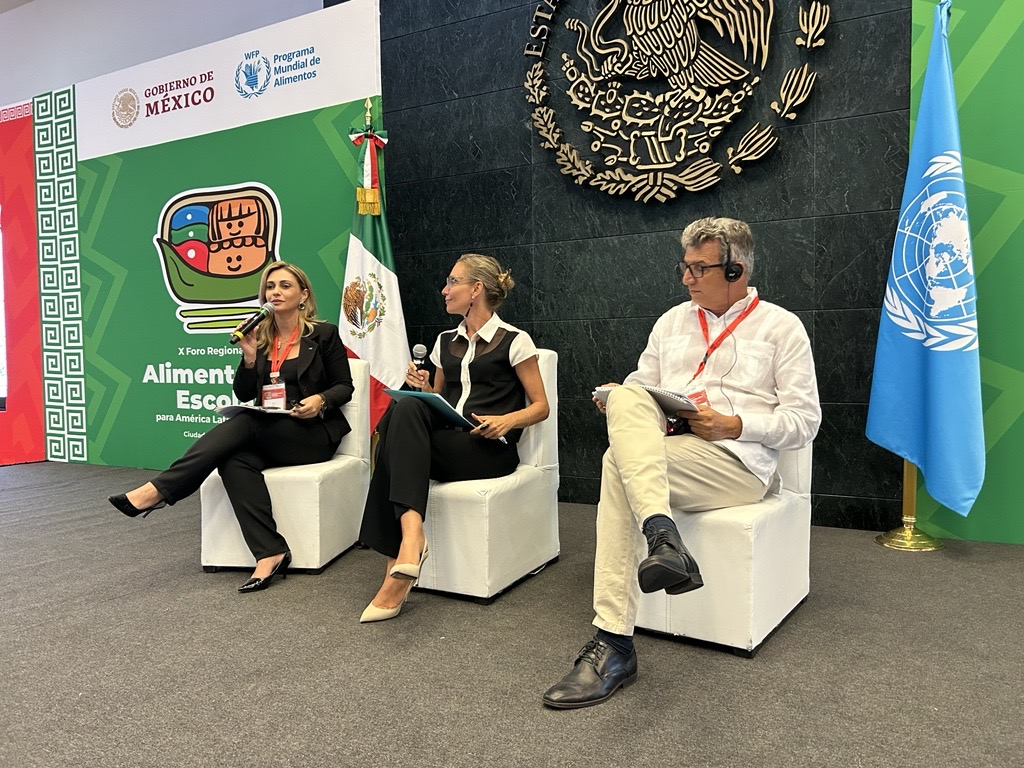
Several Latin American countries still need to implement or improve their school feeding systems. To share experiences and seek solutions on school feeding programmes, Mexico hosted the 10th Regional Forum on School Feeding for Latin America and the Caribbean between 27th and 29th August, attended by authorities and technicians from various countries.
The Head of Programme of the WFP Centre of Excellence against Hunger in Brazil, Vinicius Limongi, was at the event to follow the discussions. “The Forum is a moment for institutions involved in school feeding initiatives to meet, which creates opportunities to advance national and regional agendas on the subject,” he said.
For him, this is a unique opportunity to strengthen cooperation on the issue in the region. “Each year, a declaration is prepared by the participating countries in order to subsidize the region’s position and inform decision-makers at a global level,” he said.
“For the peoples of Latin America, food is a question of guaranteeing rights and justice, above all else,” said the Guatemalan Minister of Education, Anabella Giracca, during the event.
The Brazilian delegation included Karine Santos, coordinator of School Feeding at the National Education Development Fund (FNDE); Paola Barbieri, Project Analyst of the Brazilian Cooperation Agency (ABC) and Marenilson Batista da Silva, director of Rural Extension Services at the Ministry of Agrarian Development and Family Farming (MDA).
They took part in the panel discussion on “Implementation experiences: local purchasing”. The presentation showed the feasibility of transforming small farmers into suppliers for the school feeding system, an initiative that allows fresh and healthy products to be supplied to children and, at the same time, strengthens the local economy.
Karine showed a panel on how the school feeding system works in Brazil, the legal framework and the current discussions on improving the system. “At first, the Brazil’s Programme was concerned with achieving universality. Secondly, we were concerned with personalizing the amounts passed on to the different target groups: quilombolas, indigenous people, riverine communities. Now we’re conducting studies to come up with mechanisms to reduce regional inequalities, which influence the Programme’s impact at the top.”
Marenilson spoke about the set of integrated public policies to ensure that family farming produce reaches school meals. “Technical assistance to farmers is fundamental to transforming policies into practice. Farmers work all day long and this support enables them to integrate the production system for school meals. The country’s target is for 30 per cent of school meals to be supplied by family farming,” he said.




